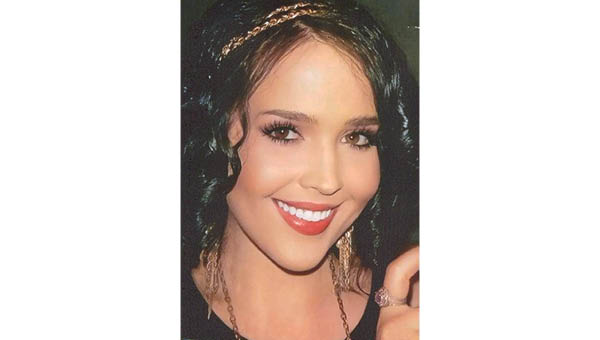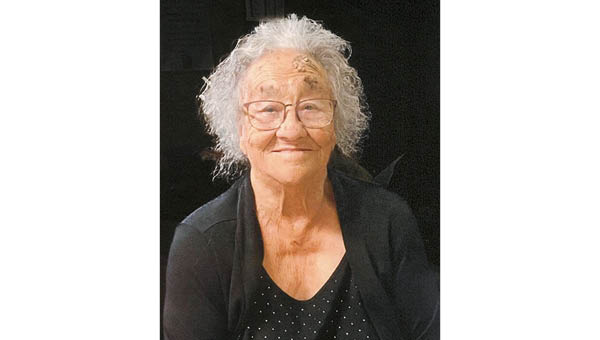Broken bats: NL pitchers ponder season with no swings
Published 12:34 pm Monday, July 20, 2020
|
Getting your Trinity Audio player ready...
|
BY MIKE FITZPATRICK
AP BASEBALL WRITER
Three or four hours before a National League game, they’d be cackling around the cage.
Madison Bumgarner and buddies — or pitchers from any home team, really — taking batting practice under an afternoon sun in an otherwise empty ballpark.
After all the bunting drills, when they finally got to swing some lumber, you’d hear oohs and aahs, hoots and hollers, boasting and bragging, teasing, and laughing.
Maybe even the occasional wager or two.
But that merry pursuit of a secondary skill is suddenly an endangered species in baseball. Under new rules for this abbreviated season delayed by the coronavirus, all games will include the designated hitter — knocking NL pitchers right out of the batter’s box.
“Well, obviously my thoughts don’t really matter,” said a smiling Bumgarner, the Arizona Diamondbacks newcomer who leads active pitchers with 19 career home runs.
“I do what I’m told. I’ll sit there and pitch and that’s it for now. I think that’s obviously where everybody wants the game to go, so it is what it is.”
Looking to protect pitchers and simplify roster construction in the middle of a pandemic, Major League Baseball players and owners agreed to expand the DH this year to the National League, a rule in place for AL clubs since 1973.
There’s no guarantee the change will stick beyond this abnormal season sheared to 60 games — but it certainly might. And even if not next year, it seems a universal DH is coming soon that would mean pitchers never hit regularly again.
Decades of hot debate … decided just like that.
“I’m upset I can’t get a Silver Slugger,” joked San Diego Padres right-hander Chris Paddack, who batted .119 as a rookie last season.
No more one-in-a-million surprises from funny-looking pitchers at the plate-like Bartolo Colon’s rousing home run in 2016, and Dae-Sung Koo’s long double off Hall of Famer Randy Johnson in 2005.
Not in 2020, at least.
“I get it for this year, but I hope it doesn’t continue,” said Milwaukee Brewers All-Star starter Brandon Woodruff, a .267 hitter last season who homered off Clayton Kershaw in the 2018 NL Championship Series.
“I think that’s pretty much the consensus for all of our pitchers. We like to hit. It changes the game.”
Of course, for every Zack Greinke (.280, three homers, eight RBIs last year) or Adam Wainwright (10 career homers, 71 RBIs) or German Márquez (.300 average in 2018), there are dozens of other pitchers who appear completely overmatched at the big league level with a bat in their hands.
Not to mention legions of fans who’d much rather see a muscular DH taking dangerous cuts than an inexperienced starter flailing away or trying to sacrifice.
For them, the new rule is a welcome relief that saves some embarrassment.
“I don’t have to punch out every time I go up there,” Washington Nationals pitcher Austin Voth said.
Curiously, the push away from pitchers hitting comes at a progressive time when creative teams seem much more inclined to experiment with two-way players than in the past.
DH/starter Shohei Ohtani is the biggest such star with the Los Angeles Angels, of course. But there’s also Brendan McKay in Tampa Bay, reliever/outfielder Michael Lorenzen in Cincinnati and more in the minor league pipeline.
If a guy is uber-talented enough to contribute both on the mound and in the lineup, some clubs don’t want to stifle that spark and waste a potential opportunity anymore simply out of skepticism or fear of injury.
Babe Ruth, where have you been?
“I’m going to miss it a lot,” Miami Marlins pitcher Pablo López said. “I love taking batting practice and having that opportunity to be in the box and produce offensively. But it’s going to give you way more time to focus on your pitching.”
Accomplished starters such as Wainwright, Masahiro Tanaka, Steven Wright, Carlos Zambrano, Chien-Ming Wang, and more have been hurt hitting or running the bases in recent memory. That can infuriate the executives paying those pitchers and making big plans based on their valuable arms, not their offense.
Owners and general managers don’t want to put those pricey investments at risk doing something unfamiliar on the field.
“Who doesn’t want to watch nine real hitters get after it? I think it’ll be better for the game,” said Pittsburgh Pirates pitcher Steven Brault, who batted .333 (14 for 42) with a homer last season.
“Do I want to hit? Of course, because I got a taste of it last year and now it’s gone, stripped from me. Unbelievable.”
Taking pitchers out of the lineup will alter strategy as well, drastically reducing sacrifice bunts, pinch hitters and double switches.
In-game, at least, the job of National League managers just got easier.
“There’s a lot less to think about with the DH,” Marlins skipper Don Mattingly said.
But even pitchers who struggle at the plate and see advantages to the new rule are fully aware of what’s lost.
“It’s good to have the DH, but I think I’m going to miss having fun with the guys in the cage,” Brewers right-hander Freddy Peralta said.





